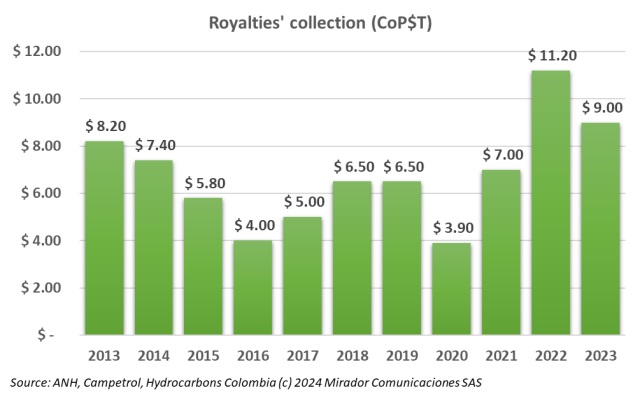President Gustavo Petro announced new energy collaboration possibilities between Colombia and Venezuela following his recent trip to the neighboring country.
Orlando Velandia, the President of Colombia’s National Hydrocarbons Agency (ANH), highlighted the country’s ongoing efforts to strengthen the oil and gas sector.
Orlando Velandia, the president of the National Hydrocarbons Agency (ANH), recently disclosed the entity’s future direction considering Colombia’s energy transition and the government’s new goals to promote unconventional renewable energies.

In a bid to revitalize regional development across Colombia and address the country’s diverse economic landscapes, the Decentralization Mission proposed significant reforms to the allocation of royalties.
The possibility of importing natural gas from Venezuela to Colombia, using the Antonio Ricaurte pipeline, has been a topic of discussion since the beginning of Gustavo Petro’s government.
Colombia is bracing itself for a natural gas deficit by 2026, as warned by the Colombian Association of Oil and Gas (ACP), citing insights from the Mining and Energy Planning Unit (UPME).
As the global push to combat climate change intensifies, one question looms large: is each nation contributing proportionally to the cause? This query arises from the impassioned remarks of Guyana’s President, Irfaan Ali, in a recent interview with the BBC.
Colombian President Gustavo Petro has once again strongly criticized the country’s shift towards an extractive economy and the lagging participation of the coffee sector.
The Plenary Chamber of the Constitutional Court refused to admit for consideration the request made by the Ministry of Finance (MinHacienda) to mitigate the effects of one of the decisions taken by the high court regarding the tax reform, which left the government with a shortfall of CoP$6.7T.
Against the backdrop of Naturgas’ annual congress, this week in Cartagena, contributor Tomás de la Calle worries about the impact of Petro-government policies on Colombia’s self-sufficiency in gas. He foresees a sellers’ market – which usually means higher prices – in the near future.